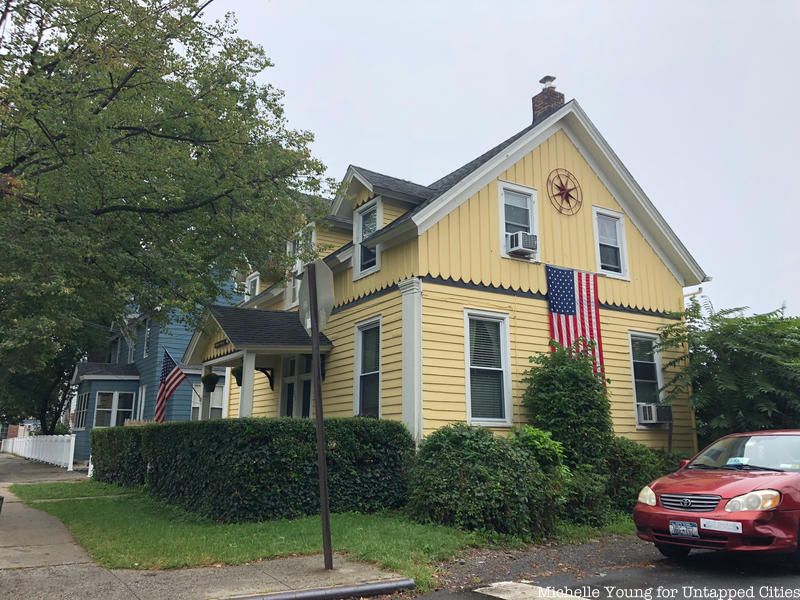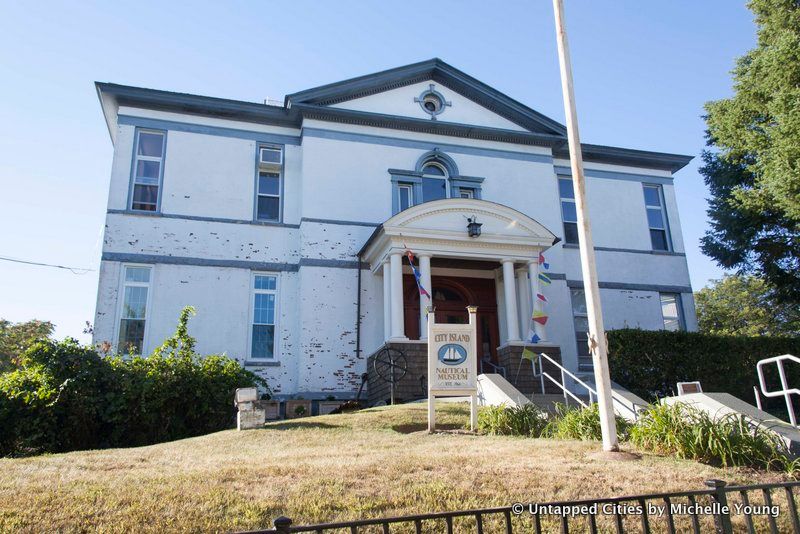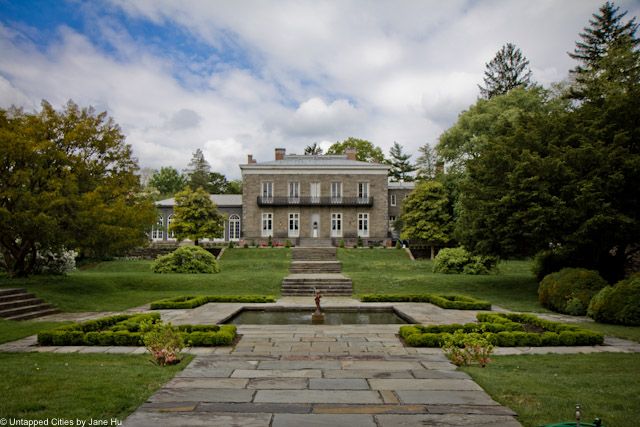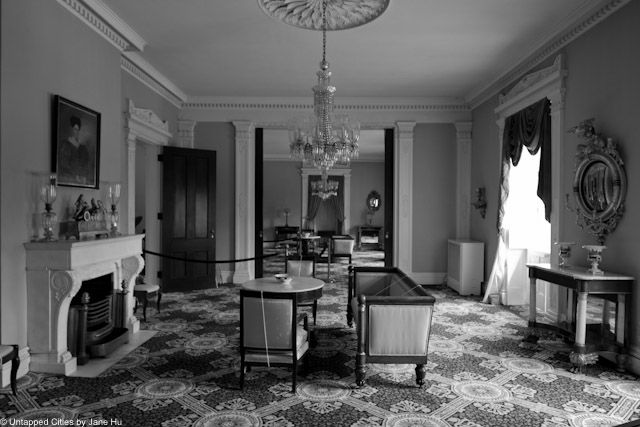Last Chance to Catch NYC's Holiday Notalgia Train
We met the voices of the NYC subway on our nostalgia ride this weekend!


You don’t need a ferry to get to City Island, the small island east of the Bronx mainland, but it might help if you have a car, or don’t mind riding the bus. Once you cross the bridge into City Island you will feel a million miles from anything you know of as New York City. The atmosphere is ripe for a Cape Cod movie set: shingled storefronts, high-steepled churches, restaurants named after big-game fish and more. But first, a little history:
Longer than it is wide, City Island is so narrow in places (.5 miles) that occasionally you can see across to water in both directions. Purchased in 1654 by Thomas Pell, from the Siwanoy band of Lenape Indians, the island was home to small numbers, mostly farmers and livestock.
In 1761 Benjamin Palmer, hoping to capitalize on the burgeoning shipping industry, bought the land, at the time known as Great Minneford’s Island. With its proximity to the Long Island Sound, Palmer settled the island as a one-stop shop for passing vessels. Ships coming to New York Harbor via Long Island Sound were required to stop at City Island and pick up a pilot who would guide the vessel past the forts (Schuyler, in the Bronx, and Totten, in Queens) into the East River and, finally, to a berth in the New York harbor. Who knows how important the island may have become if the American Revolution didn’t sweep in and take up all of Palmer’s capital.

City Island eventually became a part of New York City in 1895, when the city annexed parts of Pelham. It then found itself included with the Bronx in 1898 after further consolidation. And in 1901, it saw it’s wooden bridge replaced by a steel three-lane bridge. If you’re a civic architecture buff, you may even want to read up on the current conflict about replacing that 1901 bridge with a new model. The bridge is slated to open in 2016.
Along with the fishing and oyster industries, City Island specialized in constructing yachts, sailboats and motorboats. It was also a home base for wealthy New Yorkers to bring their yachts to be overwintered and repaired and a front runner in the early construction of several successful America’s Cup winners. During World War I, II, and the Korean War, the island received contracts for all manner of support vessel. Boat building is no longer part of the islands economy, but there are still two sailmakers, several marinas, five yacht clubs and a kayak club.
If you make the trek up to the City Island, check out its highlights:
City Island Nautical Museum: See the history of the island close up, including the 250-year old history of shipbuilders, including the famed America’s Cup, and a new photo exhibition of images of water from around the world, which opened in April 2014. Open Saturday and Sunday from 1 to 5 p.m.
Pelham Cemetery: Close to the Nautical Museum is the Pelham Cemetary, on King Avenue facing Hart Island. The cemetery is filled with the gravestones of early settlers along with well-known Pelham families. Look closely and you will also find markers for veterans of the Civil War and almost every war in history.
Hawkins Park: Originally the site of the second schoolhouse, built in 1860 and replaced in 1898, the school then became PS 17 (and which is now the Nautical Museum). The old school building was turned into a police station, before becoming a memorial park named for Leonard Hawkins, a sailor killed in WWI. The park, just off City Island Avenue at Hawkins Street, is filled with nautical themed statues that are perfect for a quick little rest and maybe some ice cream from the nearby Lickety Split.
Victorian Architecture: Take your own walking tour of the Victorian era architecture on City Island. Start with the Samuel Pell house at 586 City Island Avenue. A well-to-do oysterman, Samuel Pell was a distant descendant of the Pell family. After that try the side streets–including Belden Street, Horton Street, the west end of Tier Street, and the northeast corner of the island along King Avenue–for an impressive collection of architecture. Be sure to visit the oldest home on the island, the Schofield farmhouse, built in 1840, which can be found at the corner of Schofield and William Street.
The Bartow-Pell Mansion Museum: The vast grounds that served as both the home of Thomas Pell as well as his descendants, opened as a museum in 1946 in Pelham Bay Park. The museum is technically not on City Island, but it is intertwined with the islands history. The house and grounds include formal terraces, a fountain, herb and perennial gardens, and an 1840s stone carriage house. The story of the Bartow-Pell estate begins in 1654 when Thomas Pell, an English doctor from Connecticut, bought the land from the Siwanoy Indians as part of a nearly 9,000-acre tract. The end of the Revolutionary War reduced the estate to just a few hundred acres. The Bartow-Pell Mansion Museum is open to the public Wednesday, Saturday and Sunday from noon to 4 p.m.


Dozens of movies and television shows have also used City Island as their backdrop. First, the house featured in both 1962’s “Long Day’s Journey Into Night” starring Katharine Hepburn, and Wes Anderson’s, “The Royal Tenenbaums” is located at the end of Tier Street just west of William Avenue. This house includes a whale weathervane and a wraparound porch overlooking Eastchester Bay and Pelham Bay Park. Next, look up the City Island Diner featured in “Solitary Man,” “An Invisible Sign,” and Jerry Seinfeld’s YouTube series: “Comedians in Cars Getting Coffee.” Read more here.

Interested in exploring City Island? Join New York Adventure Club on Saturday, June 21 for a scheduled day trip that will include lunch at The Original Crab Shanty, a walking exploration around City Island, and a private tour of the Bartow-Pell Mansion. Get your tickets here. Also, for more about City Island, check out our coverage of the City Island Nautical Museum.
Subscribe to our newsletter